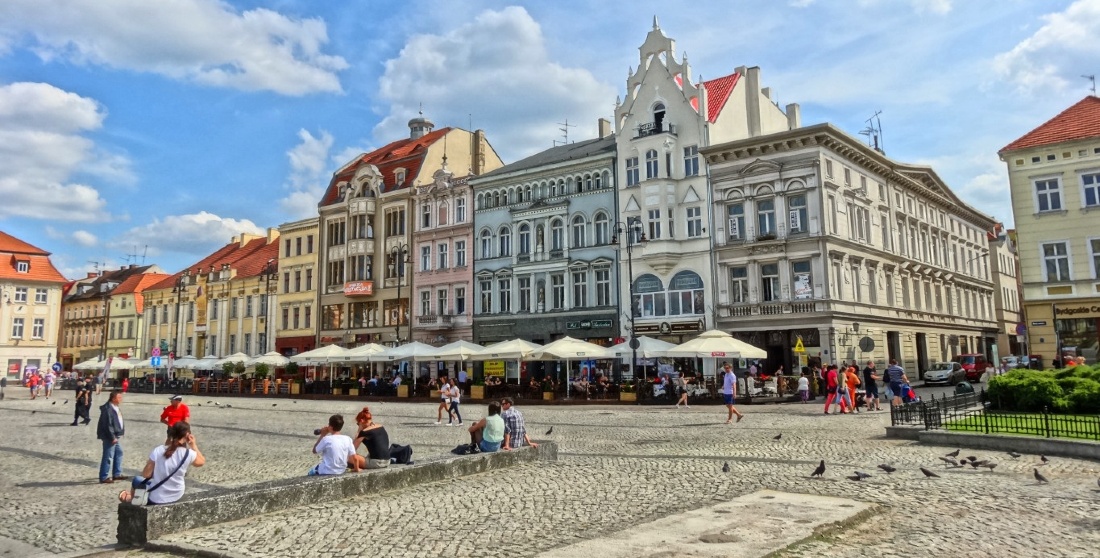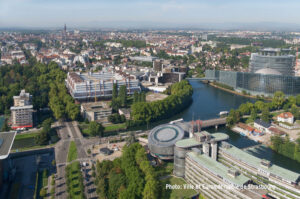- Home
- News
- Cities & District Energy News
- Bydgoszcz and Lublin receive EIB loans for climate-friendly upgrade of DH networks
Bydgoszcz and Lublin receive EIB loans for climate-friendly upgrade of DH networks
- Cities & District Energy News
- 30 January 2020
- by European Commission
The European Investment Bank (EIB), in his enhanced role as the EU Climate Bank, is stepping up its support to Polish towns to implement ambitious energy efficiency programmes.
This article was originally published by the European Commission, here:
https://ec.europa.eu/commission/presscorner/detail/en/IP_20_134

- EIB loans for an aggregate amount of PLN 200m (€46,4m) will help retrofit existing pipes and substations and connect new homes; in Bydgoszcz, the loan will also finance the installation of new highly-efficient generation sources
- The projects will benefit around 500,000 end-users in total and result in better air quality in both cities and their surroundings
- Both EIB loans are backed by the Investment Plan for Europe
The European Investment Bank (EIB), in his enhanced role as the EU Climate Bank, is stepping up its support to Polish towns to implement ambitious energy efficiency programmes. The heating distribution operators of Bydgoszcz and Lublin will receive EIB loans to modernise their networks, which will result in energy savings thanks to reduced energy losses and better air quality for their populations.
The EIB will lend PLN 100m (equivalent to €23,2m) to Bydgoszcz’s district heating operator (Komunalne Przedsiębiorstwo Energetyki Cieplnej sp. z o.o. – KPEC) to finance the upgrade of the City’s district heating network and part of its energy generation system. The neighbouring municipalities (Solec Kujawski, Szubin, Nakło nad Notecią and Koronowo) will also share the benefit.
The EIB will also lend PLN 100m (equivalent to €23,2m) to Lublin’s district heating operator (Lubelskie Przedsiębiorstwo Energetyki Cieplnej SA – LPEC) to finance the upgrade of the City’s district heating network.
In both cases, the EIB will finance up to 50% of the project costs.
The operations are part of the Programme Loan Heating Sector in Poland, which has the guarantee of the European Fund for Strategic Investments (EFSI), the financial pillar of the Investment Plan for Europe (Juncker Plan). Before Bydgoszcz and Lublin, Opole was the first City to benefit from the programme in early 2019.
Paolo Gentiloni, European Commissioner for the Economy, said: “To make the European Green Deal Investment Plan a success, we need to invest hugely in energy-efficiency projects. The Investment Plan financing provided by the EU’s climate bank will lead to a transformation of the towns of Bydgoszcz and Lublin. This is great news for residents and another success story for the transition towards climate-neutrality.”
Lilyana Pavlova, EIB Vice-President, said: “Energy efficiency is one of the surest ways to bring energy demand down and, by doing so, to reduce greenhouse gas emissions. These are our first loans to both Bydgoszcz and Lublin’s heat network operators. They add to a growing list of Polish municipal operators that receive EIB support to finance their energy efficiency programmes, leading to better air quality. This is also part of the overall transition to a low carbon economy and we are happy as the EU Climate bank to play a role”.
Additional information about the loans
In Bydgoszcz, plans by KPEC (Komunalne Przedsiębiorstwo Energetyki Cieplnej sp. z o.o.) to revamp the City’s district heating network will result in a more efficient heat supply for around 250,000 end-users, or approx. 70% of its population. The EIB loan will finance KPEC’s five-year investment program (2018-2022). In total, 55 km of old lines and 96 old substations will be retrofitted and 71 km of new lines and 416 new substations will be constructed. Moreover, five high efficiency gas CHP engines will replace the existing coal fired units, delivering primary energy savings of up to 25%. The carbon footprint of the electricity generated will be 228 g CO2/kWhe,below the EIB’s threshold of 250 g CO2/kWhe.
In Lublin, plans by LPEC (Lubelskie Przedsiębiorstwo Energetyki Cieplnej S.A.) to revamp the City’s district heating network will result in a more efficient heat supply for around 250,000 end-users, which constitutes around 75% of its population. The EIB loan will finance LPEC’s five-year investment program (2018-2022). In total, 33 km of old lines and 211 old substations will be retrofitted and 28 km of new lines and 355 new substations will be constructed, contributing to an added 59 MWth of capacity and a safer and more efficient district heating network.
The EIB signed the contract with Bydgoszcz’s KPEC in December 2019 and with Lublin’s LPEC in October 2019. Most of funds made available by the EIB are expected to be disbursed this year.
The EIB Board of Directors approved the Programme Loan Heating Sector in Poland in 2018 for up to EUR 250m (just over PLN 1bn). So far, including the PLN 120m (equivalent to €28m) loan to Opole signed in January 2019, the EIB has signed lending agreements for an aggregate sum of PLN 320m (equivalent to €74m).
Background information
About the EIB
The European Investment Bank (EIB) is the long-term lending institution of the European Union owned by its Member States. It makes long-term finance available for sound investment in order to contribute towards EU policy goals.
The European Fund for Strategic Investments (EFSI) is the main pillar of the Investment Plan for Europe. It provides first loss guarantees enabling the EIB to invest in more, often riskier projects. The projects and agreements approved for financing under EFSI are expected to mobilise more than €458.8bn in investment and support more than one million start-ups and SMEs across the 28 EU Member States. EFSI-supported investments have increased the EU’s GDP by 0.9% and created an additional 1.1 million jobs compared to the reference scenario. By 2022, the Investment Plan will have increased EU GDP by 1.8% and have created 1.7 million additional jobs. More information on the results of the Investment Plan for Europe is available here.
Latest News
-

-
 26.10.2021 Celsius Summit 2021 – Energy Democracy
26.10.2021 Celsius Summit 2021 – Energy Democracy

